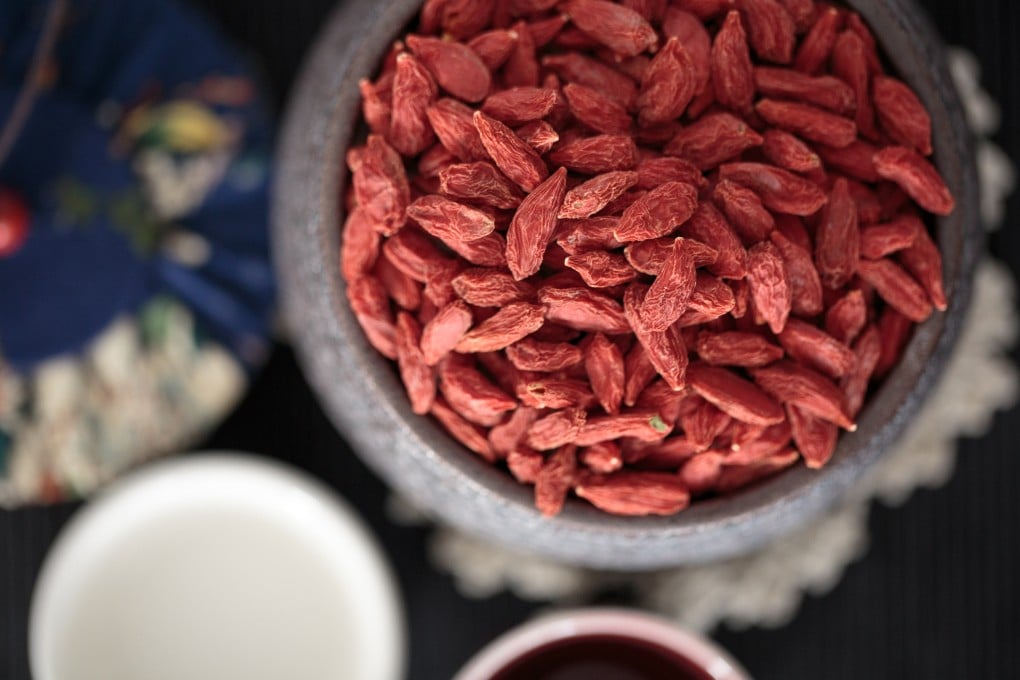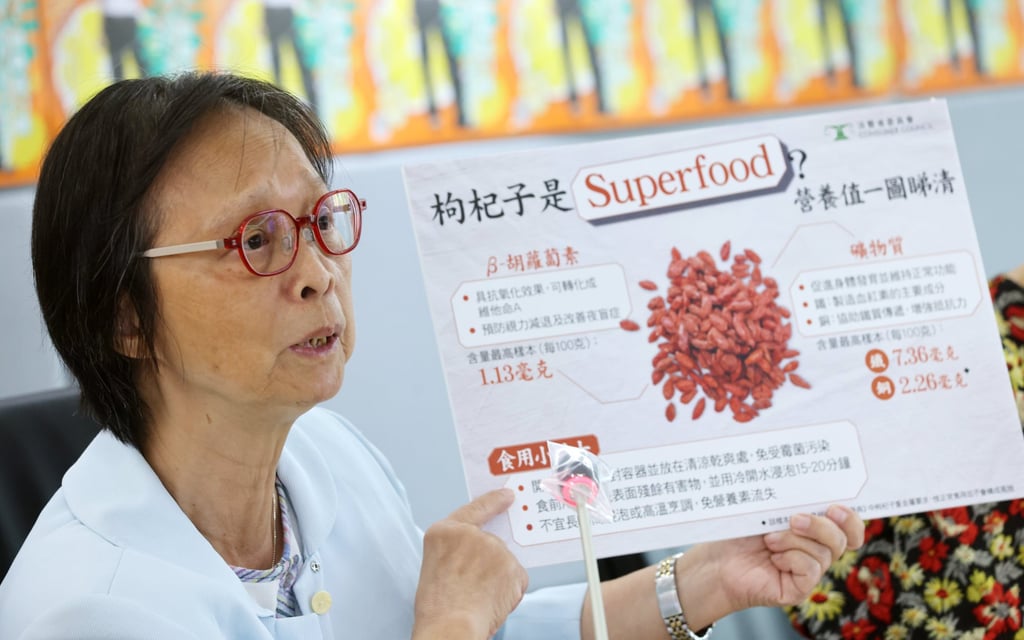Hong Kong consumer watchdog warns of heavy metals and pesticides in dried goji berries, 2 samples exceed European limit for lead
- Consumer Council urges industry to reduce pesticide use and pest control methods to cut health and environmental risks
- Goji berries are known as superfood and used in traditional Chinese medicine as well as in home-cooked dishes

All 27 samples of dried goji berries tested by Hong Kong’s consumer watchdog were found to contain various types of heavy metals, with lead concentrations close to the local limit detected in two batches.
Revealing the results on Monday, the Consumer Council also said pesticides that could pose health risks were found in 70 per cent of the samples, although at levels within local and European standards.
Goji berries are typically considered a superfood and commonly used in traditional Chinese medicine and in home-cooked dishes, such as steamed chicken and stewed soups.
“The council urges the industry to reduce the use of pesticides and other chemical pest control methods to cut risks to humans and the environment,” said Nora Tam Fung-yee, chairwoman of the council’s research and testing committee.
Tam also noted all goji berry samples tested contained various heavy metals, but 21 of them had lead levels ranging from 0.018mg to 0.29mg per kilogram. Some samples had traces of cadmium, arsenic and chromium – contaminants which can damage lungs and the respiratory system when consumed heavily.
Two samples – Premier Food’s Instant Ningxia Wolfberry and Yu Pin King’s Wolfberry Fruit – were also found with 0.284mg/kg and 0.29mg/kg of lead respectively, close to the upper limit allowed by the Hong Kong Food Adulteration (Metallic Contamination) Regulations.

The council referred the results to the Centre for Food Safety for follow-up. It tested the two samples and found the one from Premier Food contained 0.01mg/kg of lead, which is within the amount allowed by the local regulation, while Yu Pin King’s was free of the contaminant.
